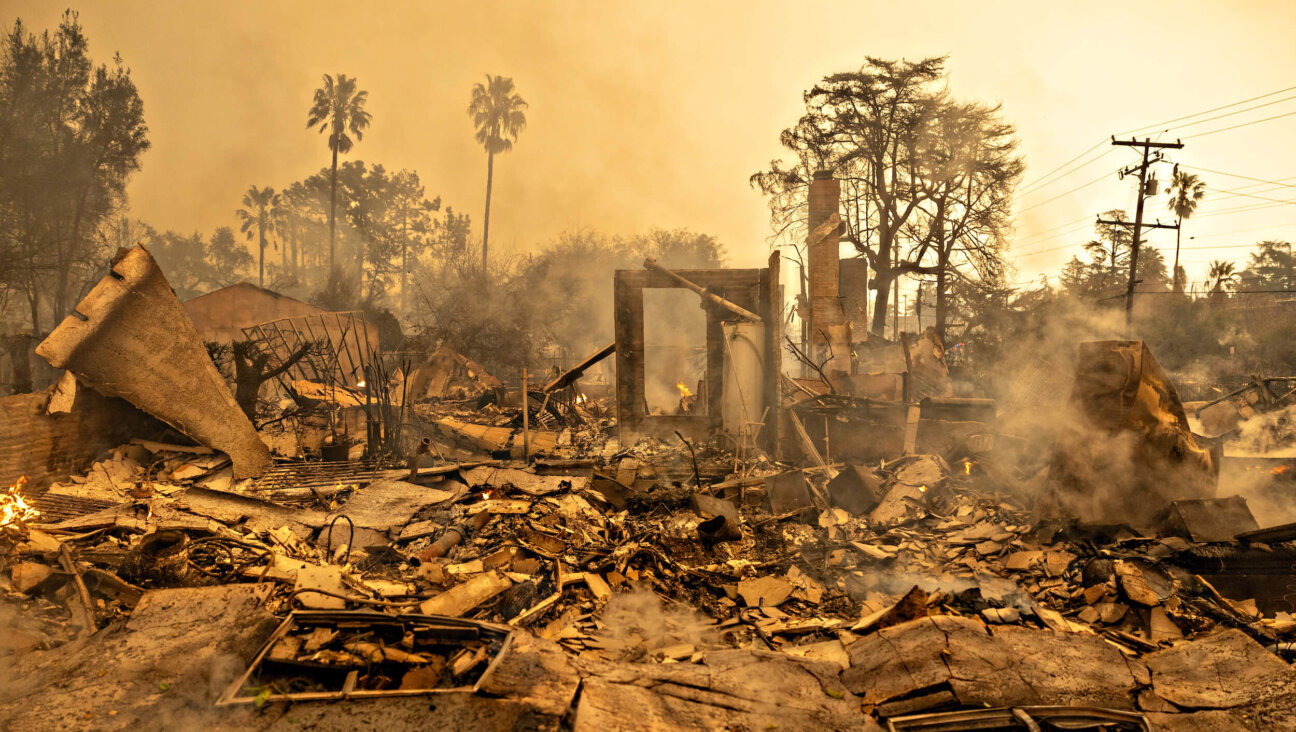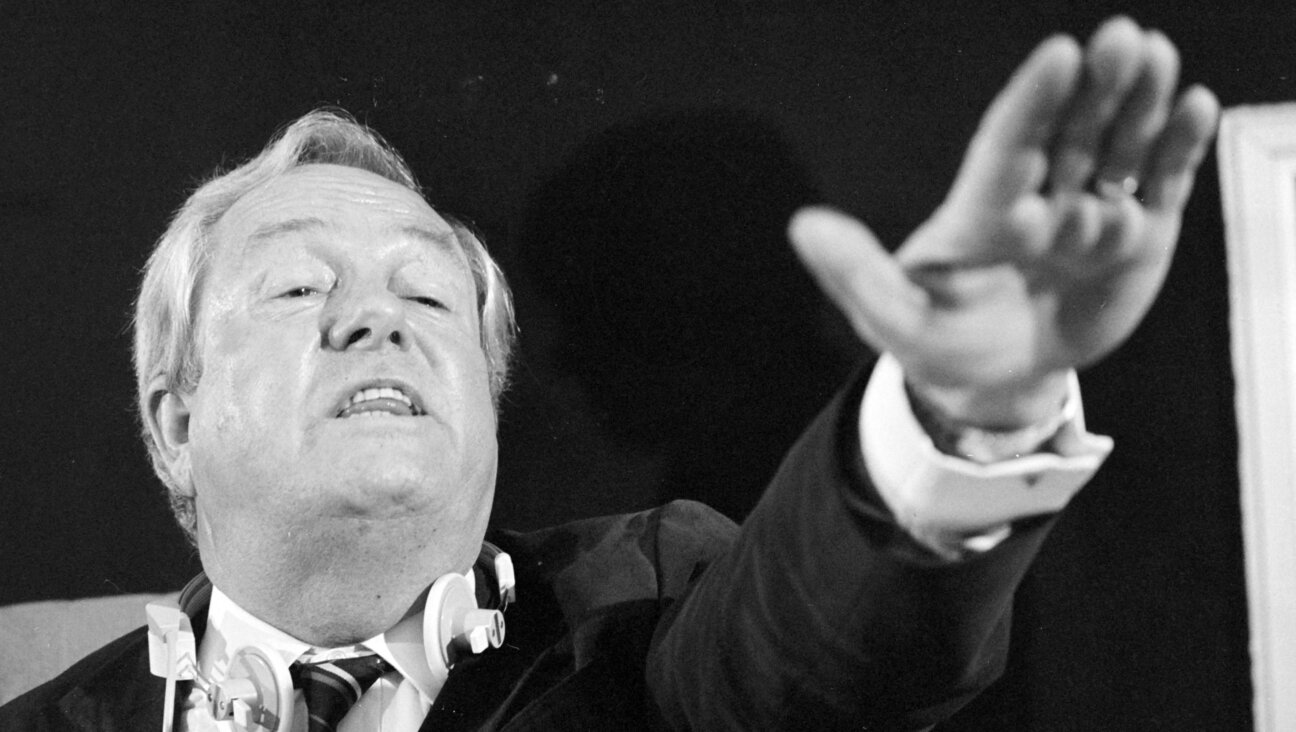The Work of Passover

Redemption: The spirit of Passover asks that we think about enslavement and freedom. Image by Getty Image
I have long believed that Judaism is a system of vocational education — that is, of education for a vocation, a calling (from the Latin vocare, to call). I needn’t elaborate here on the substance and texture of that calling. I note only that such questions as ayeka (“Where are you?”) and such injunctions as shma (Listen up!) suggest an active calling — and an expectation of response.
If we accept the idea of vocational education, then we can experience renewed appreciation of Pesach, which is, I believe, the most ingenious element of our curriculum. Pesach is a teaching moment, if ever there was one. In a dozen different ways, it offers essential lessons regarding our collective calling. Again and again I am struck, for example, by the two words avadim hayinu (we were slaves), words that could have been but were not framed quite differently, as in avadim hayu avoteinu v’imoteinu (our fathers and mothers were slaves). The internalization that is expected of us is not limited to the thundering b’chol dor va’dor — in every generation, and so forth. It is an ongoing theme of our seder.
We look backward to the classic redemption in order to be enabled to look forward to the promised redemption. That is, as Arnie Eisen has eloquently taught, our confidence that redemption is possible is based on the precedent we celebrate at our seder. We infer not only a promised land, but also l’shanah habah b’yerushalayim (next year in Jerusalem) and karev yom (“a day draws near that is neither day nor night”), a promised time.
Each cup we raise this night is an act of memory and of reverence. The story we tell, this year as every year, is not yet done. It begins with them, then; it continues with us, now. We remember not out of curiosity or nostalgia, but because it is our turn to add to the story.
Our challenge this year, as every year, is to feel the Exodus, to open the gates of time and become one with those who crossed the Red Sea from slavery to freedom.
Our challenge this year, as every year, is to reach out to all those in every land who have yet to make the crossing and help them enter freedomland.
We know some things that others did and do not always know — how arduous is the struggle, how very deep the waters to be crossed and how treacherous their tides, how filled with irony and contradiction and suffering the crossing, then the wandering.
How can we not know such things? Did we ourselves not wander in the desert for forty years, and have not those forty years been followed by twenty-five centuries of struggle and of quest? Heirs to those who struggled and quested, we are old-timers at disappointment, veterans at sorrow, but always, always, prisoners of hope. Hatikvah — the hope — is the anthem of our people, and the way of our people.
And for all the reversals and all the stumbling-blocks, for all the blood and all the hurt, hope still dances within us. That is who we are, and that is what this seder is about.
For the slaves do become free, and the tyrants are destroyed. Once, it was by miracles; today, it is by defiance and devotion.
Yet this year, as in years past, we scarcely need to be reminded how much work there is yet to do if all are to be free — free from fear, free from abject poverty, free from plague, free from tyranny, free, above all, from fear; how much work there is yet to do, and how frightfully complicated are the decisions that need to be taken along the way. This year, yet again, we see with our own eyes how bloody the struggle can be, and how riddled with doubt. We call especially to mind this year the ongoing slaughter (70,000 dead so far, and counting) in Syria, as also the struggle of people on every continent to achieve greater freedom and dignity than they have had, and we hope and pray that they will finally enjoy the blessings of freedom. And we call to mind, yet again, the endless insult and injury that is both seed and fruit of the bitter conflict between Israel and the Palestinians.
But though the path be brambled and twisted, the goal is clear. So when we raise our first cup of wine, let it be for those who suffer still, in the hope and the prayer that they, too, will know the freedom that is our blessing. And let it be for those in every land who give freedom a face and a name, whose lives nourish the blossoms of freedom around the world and enable us to hope.
Let us give thanks for the freedom that is ours, for family and friends, and let us never ever take that freedom, those friends, our families, for granted. Next year, may all who are today denied freedom dwell in the Jerusalems of their longing, united with their loved ones, together, at home, at last.
I wish for you and yours what I wish for myself and mine — the anticipation, the joy, the urgency of memory and the connected urgency of hope, and the sweetness that this holiday enables.
Contact Leonard Fein at feedback@forward.com
A message from our Publisher & CEO Rachel Fishman Feddersen

I hope you appreciated this article. Before you go, I’d like to ask you to please support the Forward’s award-winning, nonprofit journalism so that we can be prepared for whatever news 2025 brings.
At a time when other newsrooms are closing or cutting back, the Forward has removed its paywall and invested additional resources to report on the ground from Israel and around the U.S. on the impact of the war, rising antisemitism and polarized discourse.
Readers like you make it all possible. Support our work by becoming a Forward Member and connect with our journalism and your community.
— Rachel Fishman Feddersen, Publisher and CEO























